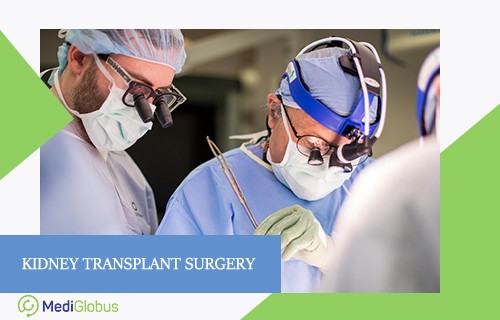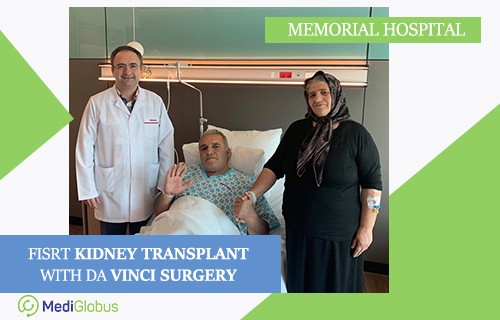Thousands of kidney transplants are performed worldwide every year. Modern medicine allows such interventions to be carried out with great success, which gives patients a chance to live their lives with high quality.
WHO NEEDS A KIDNEY TRANSPLANT SURGERY?
The need for transplantation of this organ may occur in patients of different ages – kidney transplantation can be carried out for both adults and children. The operation is done if the patient’s own organ does not fulfill its functions, which causes accumulation of uric acid, urea and water in the body.
CAUSES OF KIDNEY PATHOLOGY:
Nephropathy;
Polycystic kidney disease;
Kidney injury;
Congenital kidney disease;
Pyelonephritis;
Cancer.
CONTRAINDICATIONS FOR KIDNEY TRANSPLANTATION:
Serious heart disease;
Alcohol or drug abuse;
Atherosclerotic lesions of great vessels;
Chronic infectious diseases;
Malignant neoplasms or the period after radical treatment of tumors;
Mental illnesses that are difficult to control.
PREPARATION FOR KIDNEY TRANSPLANTATION

Doctors in foreign clinics carefully examine patients before a kidney transplant, since this step is mandatory for a quality result. During the diagnosis, individual features of the human body can be detected, which will be taken into account in planning an operation – this will increase the accuracy of the surgical procedure. Investigations are performed for both the patient who needs a transplant and the donor at the medical center where the transplantation is planned.
It is important to note that different countries of the world have established their own rules on organ donation, which have significant differences. In the European Union a patient can get an organ only from the first generation of relatives.
After the health indicators have been determined, doctors will assess the compatibility of the patient and the donor – this stage will make it clear whether the operation will be carried out or the search for a suitable organ will continue. Israeli medical centers allow donation till the 4th generation relative, and Turkish clinics – 4th generation relatives or a close friend.
In addition, each party must provide a package of documents to confirm the possibility of being a donor and recipient in accordance with the laws of the country where the transplant will be carried out.
A kidney donation can only be done on a free basis – an attempt to buy or sell an organ is in violation of the law and is pursued by law enforcement services.
KIDNEY TRANSPLANT OPERATION
Thanks to the use of the laparoscopic method for kidney transplantation, the patient feels better in the postoperative period – the blood loss is low, the wound heals faster.
Surgical intervention for transplantation is performed under general anesthesia, during which a team of specialists monitors the patient’s condition. Doctors are ready for an emergency situation at any time and can provide the necessary assistance to the patient.
Foreign clinics use the modern laparoscopic method of kidney transplant surgery. This means that the surgeon makes a small incision in the groin area and prepares the patient’s veins and arteries.
Most often, a kidney transplant is performed in a heterotopic way, in which the patient’s own organ remains in place (this operation is safer). The kidney of the donor is placed in the ileal region of the pelvis, after which the vessels are sutured and the blood supply to the graft is ensured. After that, the bladder is connected to the ureter, all incisions are stitched and the operation is completed.

KIDNEY TRANSPLANT with da vinci surgery

In October 2019, a kidney transplant using the Da Vinci robotic system was performed for the first time at the Turkish Memorial Hospital.
The operation was performed by Prof. Dr. Volkan Tugcu and the first patient was a 55-year-old man diagnosed with chronic renal failure.
Kidney transplantation with robotic surgery has more advantages than the classical method. Firstly, it is a minimally invasive operation and does not require large incisions. It is also less painful for the patient, faster and in this case the risk of post-operative complications is lowest.
PROGNOSIS AFTER KIDNEY TRANSPLANT
At the moment, modern medicine is showing good statistics with such operations. In the first year after the intervention, the rejection of the transplanted organ is observed in less than 5% of patients. Five-year statistics show the success of organ survival in 86% of cases. In general, after transplantation, the donor organ functions normally in the recipient for 15–20 years. After this period, the operation can be repeated.
WHAT HAPPENS AFTER KIDNEY TRANSPLANTATION PROCEDURE?
Immediately after a kidney transplant, the patient is taken into intensive care unit where he stays under the supervision of specialists. During this period, the patient is intravenously injected with nutrient solutions that support the body. Patient is allowed to walk after few days. If there is no cause for concern, then after two weeks the patient is discharged and is required to come to the clinic again to remove the stitches and assess the condition of the body. Usually, after such an operation, people can return to their normal life, but without physical exertion, a month after the operation.
The patient must undergo systematic examinations in the clinic time to time, which will allow to monitor the functioning of the transplanted kidney and maintain overall health. Every person who has undergone such an operation receives recommendations that must be followed — this will reduce the risk of donor organ rejection. Among the main points:
Taking medication prescribed by the attending physician;
Regular examinations and testing;
Independent observation of such indicators as blood pressure, pulse, weight, etc;
Compliance with the prescribed diet;
Playing sports.
You can get detailed advice on kidney transplantation abroad from MediGlobus coordinators. Leave your query in the form below and our experts will contact you. Our services are absolutely free for patients!





